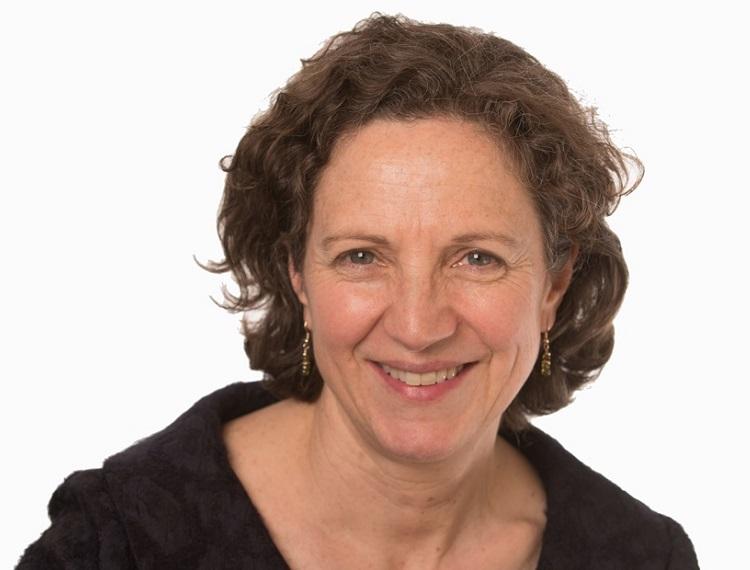Office for Students annual review emphasises importance of quality provision

All students should expect a good quality experience of higher education, the Office for Students (OfS) says in its Annual review, published today (1 Dec).
The review makes clear that most higher education courses in England are high quality, with the majority of universities and colleges expected to comfortably meet the OfS’s requirements in this area. It argues that a minority of providers are letting students down with poor quality and uninspiring courses. The regulator has warned that poor quality courses – even in otherwise highly performing universities – are not acceptable.
The review looks at the state of the English higher education landscape, as well as the work the OfS has carried out in the last year, and what it expects to prioritise in the next.
English universities and colleges continued to be tested throughout 2021, with the ongoing impact of the pandemic reverberating across the sector and increasing numbers of students seeing their experiences of higher education shaped by coronavirus. The review finds that English universities and colleges have, for the most part, risen to the challenge.
In her commentary, Nicola Dandridge, chief executive of the OfS, argues that good quality higher education goes hand in hand with improved equality of opportunity. She says:
‘We have, over this year, been engaged in a range of consultative work on the future regulation of quality and standards. Some of this has provoked quite a debate, and we have adjusted our plans as a result of feedback we have received. It is important to emphasise again that we expect the majority of registered providers to comfortably outperform the requirements we set in our quality conditions: there will not be armies of OfS inspectors assessing teaching quality, creating rafts of additional bureaucracy. Many providers that we regulate already offer good or outstanding higher education and will be left to get on with what they are already doing well.
‘What we cannot do is tolerate the minority of providers that are letting students down. Nobody embarks on a higher education course expecting to find it uninspiring and of poor quality, so that they end up dropping out, or to be unable to find employment afterwards. Universities and colleges heavily promote the quality of their courses and the employment prospects of their graduates in their marketing; they know how important these are to their students. So courses that offer little to students will have to change, or they will have to close. We are also clear that we will not accept pockets of poor provision in otherwise high-performing providers, nor lower expectations for certain groups of students.
‘Improving equality of opportunity without maintaining quality and standards will not lead to positive student outcomes. Likewise, maintaining quality and standards without improving equality of opportunity means excluding students who would stand to benefit in a fairer system. We will always take context into account in our regulation, but not if that involves embedding disadvantage into our regulatory system.’
This year has seen anger over harassment, racism and other systemic inequalities on campus, and the OfS will be prioritising these issues next year, to ensure that all students are safe and supported during their time at university.
Tackling harassment – alongside improved quality and equality of opportunity – is a priority for 2022, Nicola Dandridge says:
‘That universities and colleges tackle and respond effectively to harassment and sexual misconduct is fundamental to ensuring that students are successful in their studies. Our statement of expectations on harassment and sexual misconduct, published in April this year, set out the policies and procedures universities and colleges should have in place to prevent harassment from occurring in the first place, and to ensure an appropriate and effective response if it does happen. We will be reviewing providers’ and students’ responses in 2022, and then determine how to deliver the change needed in this area most effectively.’

It is crucial that universities and colleges deliver the student experience that is promised
Writing in his foreword for the review, OfS chair Lord Wharton praises the work of universities and colleges through 2021, and highlights the need for them to equip students with skills which will help them succeed through their studies and after graduation:
Since beginning my role as chair of the Office for Students (OfS), I have been struck by the higher education sector’s response to the challenges of the coronavirus pandemic.
In a difficult and unprecedented period for the entire country, many universities and colleges, and their students and staff, have truly gone above and beyond. From the medicine and healthcare students serving on the frontline, to the researchers who have developed life-saving vaccines, there is much of which the sector can be proud.
The challenge for the future is simple: to ensure that we continue to have a world-leading higher education sector
characterised by:
- high-quality learning and teaching, and
- equality of opportunity.
These two priorities are inextricably linked: you cannot have one without the other.
Any suggestion that quality must be sacrificed to enhance equality, or vice versa, does a disservice to both students and the sector as a whole.
The forthcoming launch of the second OfS strategy heralds a new era for us as a regulator, one in which we will be more assertive in intervening to ensure that universities and colleges uphold their obligations. The pandemic has brought to the fore many of the positives of higher education in England. However, where there are pockets of poor-quality provision failing to deliver positive outcomes for students, the OfS is committed to using the regulatory
tools at its disposal.
It is crucial that universities and colleges deliver the student experience that is promised, and that students leave higher education equipped with the skills they need to thrive. One course that fails to deliver positive outcomes for students is one course too many. Similarly, universities and colleges where there is rapid and unjustified grade
inflation must be challenged to provide, instead, meaningful and long-lasting positive outcomes for students through high-quality provision.
While the higher education sector in England has made significant strides in relation to equality of opportunity,
there is still more that must be done. As the universities minister noted in recent statutory guidance, large groups, such
as white working-class boys, are still woefully underrepresented. We must additionally now be alert to the uneven
effects of the pandemic, where already disadvantaged students have been hit hardest. There is also the challenge of
tackling regional inequalities. Our data shows that participation rates are lower for students from coastal regions, and parts of the north and midlands. Well paid graduate employment is concentrated in London and the south east. As we recover from the pandemic, we must redouble our efforts to ensure that ‘where you are from’ continues to matter less, and ‘what you can offer’ continues to matter more.
The next OfS strategy will be ambitious, but ambition need not and will not lead to unnecessary regulatory burden for the sector. It is our intention that universities and colleges should be enabled to achieve their ambitions free from unnecessary red tape, so long as they continue to meet the OfS’s baseline requirements. As a regulator, we will
take a risk-based approach to ensure that those providers that meet their obligations are given the space and autonomy needed to innovate and excel. The past 12 months have shown what English higher education is capable of at its best; it is in that spirit that we set out our goals for the future.
Finally, I would like to pay tribute to Chris Millward, who stands down as Director for Fair Access and Participation at the end of this year. Chris has led our work on access and participation with authority and dedication since the setup of the OfS.
I would also like to thank our chief executive, Nicola Dandridge, who will be stepping down from May 2022. The achievements of the last year set out in this review, and the establishment of the OfS as an effective higher education regulator, would not have been possible without Nicola’s leadership.
She continues to serve as an outstanding chief executive, working diligently to ensure the OfS does everything it can to protect the interests of students. My thanks to Nicola for her contribution and my best wishes to her for the future.
Lord Wharton of Yarm, Chair of the Office for Students
Chair’s foreword, Office for Students annual review 2021











Responses